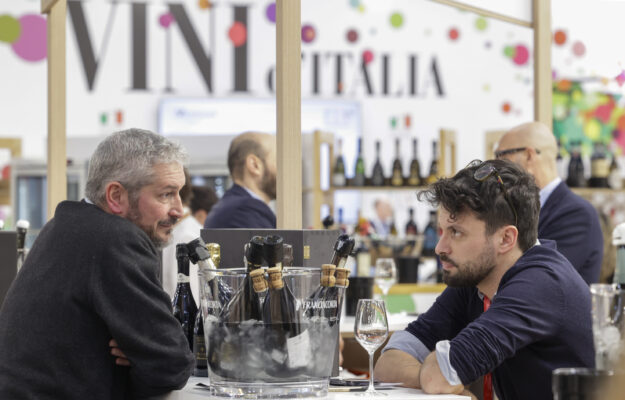Inflation is loosening its grip a little bit, though it is still felt in a very uncertain economic scenario. And it is even more difficult to decipher because of the continuing International crises - mainly Ukraine-Russia and Israel-Hamas, but not only. In Dusseldorf at ProWein 2024 (which closes March 12th), where Italy is the leading Country, boasting just under 1.200 exhibitors (down, however, compared to past editions), the “ProWein Business Report”, carried out by the University of Gesenheim, seemed to confirm the cautiously positive sentiment. The Report was based on a survey of over 2.000 experts from the entire value chain of the sector. The experts considered the increase in costs experienced especially in 2023 as one of the biggest problems on the supply chain, because it undermined profitability (resulting in postponing investments and having to revise commercial strategies, leading many to cut production of more entry level wines). Combining this also to a decline in the purchasing power of families, and an overall reduction in consumption makes for a definitely not very tranquil situation.
However, in and around the halls at the German Fair (this year, just like in 2023, it was complicated by various transport strikes, especially in air traffic, linked especially to Lufthansa, making arrivals and also departures difficult, which is a sign that Germany is less solid, economically and politically, than in the past), there is an atmosphere of fresh air, but no fireworks, and a slow market, still characterized by professionals’ caution. In any case, there is an attempt to reverse the trend, after a definitely not easy period, which will probably happen in the second half of the year. Top buyers came to the Fair from all over Europe (especially from the North and North East, including Russia), from the United States and North America, in general, while the entire Asian area was absent (also evidencing the difficulties of the wine market in Japan, China and beyond). There was a lot of work on the agenda at the Fair, while the “occasional” contact, due mostly to much less participation than in the past, is practically just a mirage, most people said. And, since among costs that increased enormously, infrastructure disruptions and so on, many people pointed out, several have also said that 2024 will be their last ProWein. Others, instead, have said that abandoning Dusseldorf in favor of the ambitious Wine Paris & Vinexpo, is absolutely premature, because the German Fair, at the moment, remains a historical and stable reference for wine producers and professionals.
More importantly, however, what is changing are the markets, and above all consumers. One of the elements of change is that requests are concentrated more and more on the premium ranges, perhaps in fewer quantities, and more or less abandoning the more entry level products (some said it is due to a much more International, rather than purely German presence at the Fair. Germany is known for being a very price-sensitive market and oriented towards economical products, purchased primarily through mass retail trade, as described here). Another important aspect that from being a trend is becoming a trend, is the demand for less alcoholic content wines (including no and low alcohol, but not only), especially white wines, but also reds, an overall modernization effort at the production level as well as the communication level. Those on the market are clearly asking for it, especially to reconnect with younger consumer groups, who throughout the world are changing their approach to wine and alcoholic beverages in general.
There are quite a few people who are saying that today all the signs and trends that come up must be listened to, analyzed and if possible anticipated, but definitely not ignored. Furthermore, we must try to meet the changing markets without losing identity, vocation and soul, evaluating aspects and communicating with interlocutors who until now, sometimes a bit superficially, have been ignored.
In the meantime, there is more positive news coming from the German market, as Matteo Zoppas, president of ICE said, “the wine world has been showing definite signs of a slowdown, especially in the last part of 2023. We have no information about a reversal of the trend in the first months of 2024. In spite of this scenario, though, Italy’s wine exports exceeded 1 billion euros in 2023, which has consolidated its position as Germany’s top trade partner. The German market’s appreciation of Made in Italy wine has allowed us to maintain a 39.6% market share and a positive trend for exports of sparkling wines, which increased + 6.8%, reaching 125 million euros”.
Copyright © 2000/2026
Contatti: info@winenews.it
Seguici anche su Twitter: @WineNewsIt
Seguici anche su Facebook: @winenewsit
Questo articolo è tratto dall'archivio di WineNews - Tutti i diritti riservati - Copyright © 2000/2026







































































































































































































